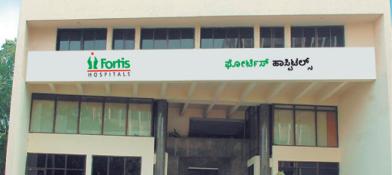Rh factor blood test
Overview:
Rh factor blood test is a test that checks for the presence of rhesus factor on the surface of red blood cells (RBCs) in the body. The rhesus factor is called the Rh factor. The presence of Rh factor plays a significant role in pregnancy and during blood transfusions.
About Rh factor:
Rh factor is a protein present on the surface of the RBCs. Based on the antigens there are four types of blood groups are A, B, AB, as well as O. Based on the presence or the absence of the Rh factor, the blood groups are given + and – sign. The Rh factor has many proteins in its system. Out of them D, C, c, E, and e are the significant proteins. Rh-factor proteins are highly immunogenic which means they can trigger immune reactions leading to antibody formation.
The presence of protein on RBCs surface is indicated by Rh-positivity and the absence is indicated by Rh-negativity. The presence/absence of the Rh factor plays an important role in pregnancy and during blood transfusions. Knowing the Rh status is very important in pregnancy as it can lead to adverse outcomes if not treated properly.
Indications:
Rh factor can have a significant impact on pregnancy and during blood transfusions. Rh factor is obtained from the biological parents. During pregnancy the mother’s and the baby’s blood do not mix. However, there is a chance during birth or when there is trauma to the abdomen in pregnancy. Chances of mixing both mother's and baby’s blood include:
- Loss of pregnancy due to miscarriage
- Pregnancy occurring in areas outside the uterus, called ectopic pregnancy
- Abortion and delivery
- Molar pregnancy is when there is a noncancerous tumor in the uterus.
- During an invasive pregnancy test called amniocentesis
- A prenatal test called the chorionic villus sampling where chorionic villi of the placenta are tested and cordocentesis where the baby’s blood is removed from the umbilical cord for testing
- Pregnancy bleeding due to trauma or unexplained causes
- When a breech baby is rotated manually before birth
Rh Incompatibility:
If a mother is Rh-negative and the growing baby is Rh-positive and the blood comes in contact, Rh antibodies can develop in the mother against the Rh-negative blood. This is called Rh incompatibility. This does not affect the first baby or the mother. But it can be problematic for the second baby who is Rh positive.
This can cause complications in the second pregnancy. The Rh antibodies can easily cross the placenta and destroy the RBCs of the developing baby considering them as foreign bodies. This is called Rh disease.
Rh disease:
Rh disease causes life-threatening anemia called hemolytic anemia, jaundice, liver and heart failure, and stillbirth of the baby. Mild Rh disease does not cause many complications, but severe Rh disease can be life-threatening. Babies recover from mild disease, but severe disease should be treated with blood transfusion to replace the RBCs.
If a mother is Rh-negative, then another test called the antibody screen has to be done. This test has to be done in the first trimester, for 28 weeks, and at birth to detect Rh antibodies. Rh immunoglobulin shots are given to Rh-positive mothers to prevent the synthesis of Rh antibodies in pregnancy. A Rh-negative mother and Rh-positive baby also require the Rh immunoglobulin injections to the mother.
Other indications of Rh factor test:
Rh factor test plays a significant role in transfusion reactions. This occurs when there is a mismatch between the donor’s and recipient’s blood. This leads to the recipient's immune system attacking the donor’s blood. These are called haemolytic transfusion reactions.
The Rh factor test:
The Rh factor test refers to a simple blood test every pregnant woman should undergo. This is called a type and screen test that women in their first trimester should undergo at the first prenatal appointment to determine the Rh status. This helps in identifying Rh incompatibility and provides Rh immunoglobulin injections early in the pregnancy.
The Test procedure:
The skin at the site where the blood will be withdrawn is carefully swabbed with alcohol and an elastic band is wrapped. An individual has to fold the fist to allow the easy flow of blood. Blood will be drawn from a vein by using a small needle. The required amount of blood is collected in a vial and sent to the lab for evaluation. The area is bandaged.
Interpretation:
After determining the Rh status of the mother an antibody screening is done to check for the development of antibodies. If the mother is Rh positive no treatment is necessary. However, if the mother is Rh-negative and the antibody screen is also negative, an Rh immunoglobulin injection is given to the mother.
Rh Immunoglobulin prevents the development of antibodies in the mother that can be fatal to the second child. These immunoglobulins are given in the form of shots at 28 weeks of pregnancy and within 72 hours post-delivery if the baby is Rh-positive. Rh immunoglobulin injections can effectively treat Rh incompatibility. In cases of already developing Rh antibodies, the immunoglobulin injections do not work. In such conditions, close monitoring of the mother should be done to check for any complications throughout the pregnancy.
Side effects:
Fatigue, dizziness, bleeding, and bruising at the site of withdrawal are some of the side effects associated with the procedure.
Conclusion:
Rh-factor blood test is a vital test for detecting Rh-factor incompatibility in pregnancy and blood transfusions. This test is done in early pregnancy and during blood transfusions. It can protect the individual and the baby from potential complications.
Popular Searches :
Hospitals: Cancer Hospital in Delhi | Best Heart Hospital in Delhi | Hospital in Amritsar | Hospital in Ludhiana | Hospitals in Mohali | Hospital in Faridabad | Hospitals in Gurgaon | Best Hospital in Jaipur | Hospitals in Greater Noida | Hospitals in Noida | Best Kidney Hospital in Kolkata | Best Hospital in Kolkata | Hospitals in Rajajinagar Bangalore | Hospitals in Richmond Road Bangalore | Hospitals in Nagarbhavi Bangalore | Hospital in Kalyan West | Hospitals in Mulund | Best Hospital in India | | Cardiology Hospital in India | Best Cancer Hospital in India | Best Cardiology Hospital in India | Best Oncology Hospital In India | Best Cancer Hospital in Delhi | Best Liver Transplant Hospital in India
Doctors: Dr. Rana Patir | Dr. Rajesh Benny | Dr. Rahul Bhargava | Dr. Jayant Arora | Dr. Anoop Misra | Dr. Manu Tiwari | Dr. Praveer Agarwal | Dr. Arup Ratan Dutta | Dr. Meenakshi Ahuja | Dr. Anoop Jhurani | Dr. Shivaji Basu | Dr. Subhash Jangid | Dr. Atul Mathur | Dr. Gurinder Bedi | Dr. Monika Wadhawan | Dr. Debasis Datta | Dr. Shrinivas Narayan | Dr. Praveen Gupta | Dr. Nitin Jha | Dr. Raghu Nagaraj | Dr. Ashok Seth | Dr. Sandeep Vaishya | Dr. Atul Mishra | Dr. Z S Meharwal | Dr. Ajay Bhalla | Dr. Atul Kumar Mittal | Dr. Arvind Kumar Khurana | Dr. Narayan Hulse | Dr. Samir Parikh | Dr. Amit Javed | Dr. Narayan Banerjee | Dr. Bimlesh Dhar Pandey | Dr. Arghya Chattopadhyay | Dr. G.R. Vijay Kumar | Dr Ashok Gupta | Dr. Gourdas Choudhuri | Dr. Sushrut Singh | Dr. N.C. Krishnamani | Dr. Atampreet Singh | Dr. Vivek Jawali | Dr. Sanjeev Gulati | Dr. Amite Pankaj Aggarwal | Dr. Ajay Kaul | Dr. Sunita Varma | Dr. Manoj Kumar Goel | Dr. R Muralidharan | Dr. Sushmita Roychowdhury | Dr. T.S. MAHANT | Dr. UDIPTA RAY | Dr. Aparna Jaswal | Dr. Ravul Jindal | Dr. Savyasachi Saxena | Dr. Ajay Kumar Kriplani | Dr. Nitesh Rohatgi | Dr. Anupam Jindal
Specialties: Heart Lung Transplant | Orthopedic | Cardiology Interventional | Obstetrics & Gynaecology | Onco Radiation | Neurosurgery | Interventional Cardiology | Gastroenterologist in Jaipur | Neuro Physician | Gynecologist in Kolkata | Best Neurologist in India | Liver Transfer | Best Cardiologist in Delhi































